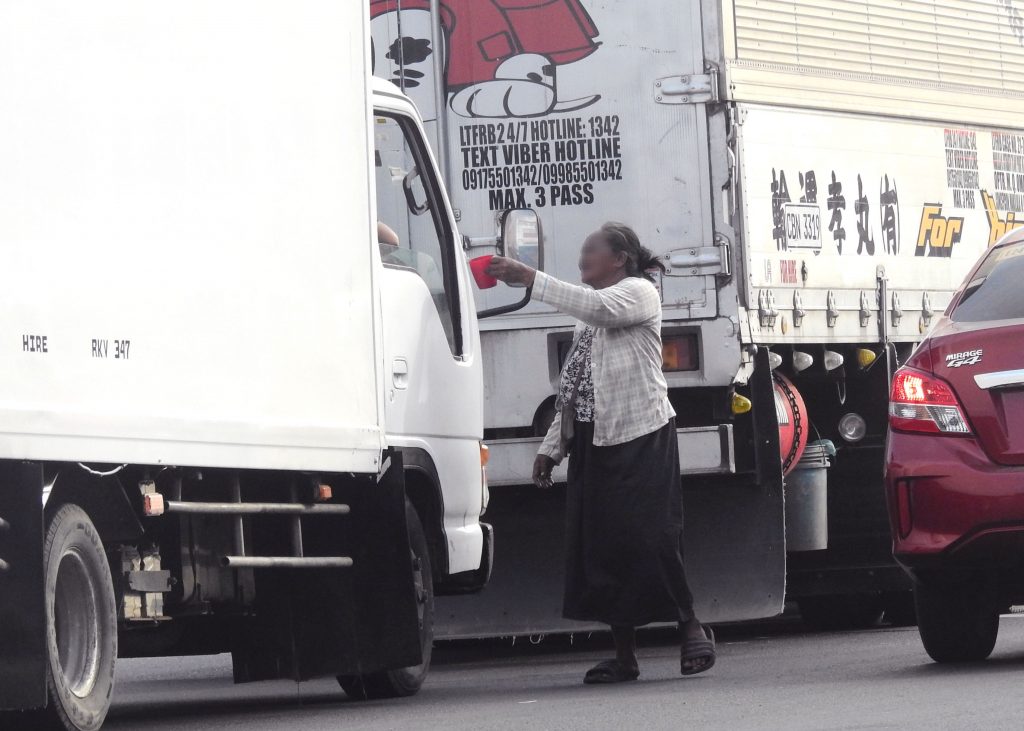- City intensifies Anti-Mendicancy Law to prevent child exploitation on the streets
THE CITY Social Welfare and Development Office (CSWDO) has ramped up the enforcement of the Anti-Mendicancy Law to minimize rampant street begging, particularly those who exploit children and infants.
CSWDO head Julie Dayaday said they must intensify their efforts with the coming holiday season, which brings the deluge of indigenous peoples from the uplands and from neighboring towns looking to spend Christmas in the city.
Dayaday revealed that most of the visiting IPs are from Laak, Davao de Oro, Kapalong, Talaingod, Davao del Norte, and Badjaos from Davao del Sur roaming the streets of Toril. She coordinated with the DSWD XI and other local government units to discourage IPs from visiting the city during the holiday season.
Unfortunately, street beggars risk their safety, especially when they carry their infants and kids around to elicit more sympathy.
Caroling in the streets is also prohibited. However, they would much prefer that the IPs do caroling in neighborhood areas as it is much safer than competing with vehicles in the streets.
“Mendicant” refers to any person who has no visible and legal means of support and has to resort to begging as their means of living.
Section 4 of the Presidential Decree No. 1563 of the Anti-Mendicancy Law of 1978 states that any infant or child 8 years old and below found begging or exploited by a mendicant for the purpose of begging shall be seized and considered as a neglected child. They will be rescued and placed in the custody of the Department of Social Welfare and Development (DSWD).
The law also penalizes mendicants with a fine not exceeding P500 or imprisonment not exceeding two years. A habitual mendicant shall pay a fine not exceeding P1,000 and imprisonment not exceeding four years.
Meanwhile, a person who will be caught giving alms shall pay a fine not exceeding P20.
On Oct. 6, the CSWDO handed out pamphlets to PUJ drivers and passengers to remind them against giving money to children and beggars handing out empty envelopes at stop lights. Dayaday stressed that mendicants will continue to beg so long as people keep on giving.
“Wala mi naga ingon nga dili ta motabang pero didto lang gyud sa proper na agency, proper na mga partners nato nga naga- extend pud og help sa atong mga beggars,” Dayaday said.
Councilor Wilberto Al-ag, the committee on social services chair, also joined in handing out information materials on the Anti-Mendicancy Law. He recognized the absence of a city ordinance, especially with the outdated penalties in the 1978 legislation.
For instance, the P20 penalty for the violator is outdated.
“Mahimo pud ta og atoang sarili nga ordinansa diri sa local, sarili nga implementing rules and regulations para mawala nato ni nga problema (We will create our own local ordinance and implementing rules and regulations to address this problem),” Al-ag said.
Meanwhile, the CSWDO carries out rescue operations almost daily and they were referred to their corresponding barangays. The department also provides skills training and livelihood although individuals insist on begging.
“Ang pagpanginabuhi dili man gyud na sayon, proseso man gyud na so pag change sa behavior sa atong mga beggars diha sa dalan proseso man gyud na kaya lang naay easy money ilang makuha sa kalsada (It’s a process to change the behavior of our beggars. They still think that street begging is easy money),” Dayaday said.

